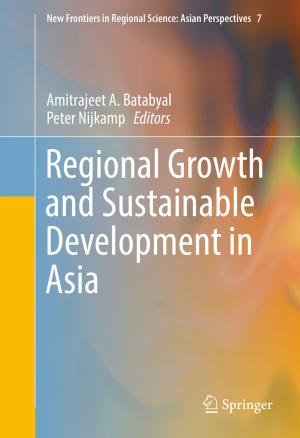The Gendered Politics of the Korean Protestant Right
Hegemonic Masculinity
Nonfiction, History, Asian, Korea, Social & Cultural Studies, Social Science, Religion & Spirituality| Author: | Nami Kim | ISBN: | 9783319399782 |
| Publisher: | Springer International Publishing | Publication: | November 1, 2016 |
| Imprint: | Palgrave Macmillan | Language: | English |
| Author: | Nami Kim |
| ISBN: | 9783319399782 |
| Publisher: | Springer International Publishing |
| Publication: | November 1, 2016 |
| Imprint: | Palgrave Macmillan |
| Language: | English |
This book provides a critical feminist analysis of the Korean Protestant Right’s gendered politics. Specifically, the volume explores the Protestant Right’s responses and reactions to the presumed weakening of hegemonic masculinity in Korea’s post-hypermasculine developmentalism context. Nami Kim examines three phenomena: Father School (an evangelical men’s manhood and fatherhood restoration movement), the anti-LGBT movement, and Islamophobia/anti-Muslim racism. Although these three phenomena may look unrelated, Kim asserts that they represent the Protestant Right’s distinct yet interrelated ways of engaging the contested hegemonic masculinity in Korean society. The contestation over hegemonic masculinity is a common thread that runs through and connects these three phenomena. The ways in which the Protestant Right has engaged the contested hegemonic masculinity have been in relation to “others,” such as women, sexual minorities, gender nonconforming people, and racial, ethnic, and religious minorities.
This book provides a critical feminist analysis of the Korean Protestant Right’s gendered politics. Specifically, the volume explores the Protestant Right’s responses and reactions to the presumed weakening of hegemonic masculinity in Korea’s post-hypermasculine developmentalism context. Nami Kim examines three phenomena: Father School (an evangelical men’s manhood and fatherhood restoration movement), the anti-LGBT movement, and Islamophobia/anti-Muslim racism. Although these three phenomena may look unrelated, Kim asserts that they represent the Protestant Right’s distinct yet interrelated ways of engaging the contested hegemonic masculinity in Korean society. The contestation over hegemonic masculinity is a common thread that runs through and connects these three phenomena. The ways in which the Protestant Right has engaged the contested hegemonic masculinity have been in relation to “others,” such as women, sexual minorities, gender nonconforming people, and racial, ethnic, and religious minorities.















